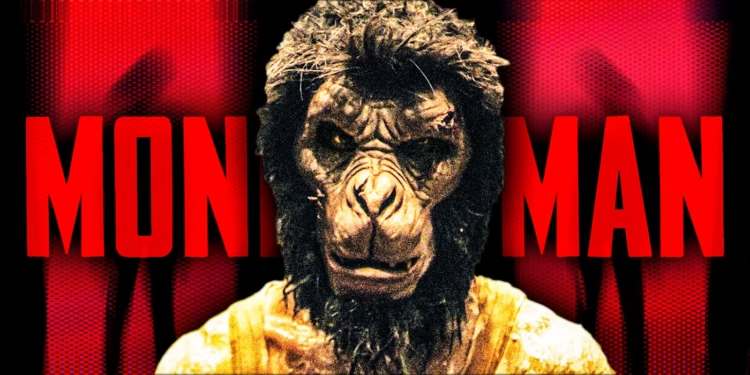Dev Patel Didn’t Just Direct This Film—He Poured Himself Into It
Monkey Man isn’t just a debut—it’s a declaration.
Dev Patel, best known for his sensitive roles in Slumdog Millionaire and Lion, throws every expectation out the window in his directorial debut. This is not a quiet indie drama. It’s a ferocious, blood-splattered action thriller that feels like John Wick filtered through the spiritual rage of India’s underclass.
And it’s one of the most unapologetically angry films of the year.
A New Hero Is Born—One Fist at a Time
Patel stars as a nameless fighter, known only as “Kid,” who spends his nights getting beat down in underground cage matches wearing a gorilla mask. His body is bruised, but his rage runs deeper—fueled by the trauma of losing his mother to a corrupt system and watching the world step on the poor and powerless.
The story kicks into motion when Kid infiltrates the elite, Hindu-nationalist circle responsible for his past. What follows is a full-blown vengeance rampage that unfolds across sweat-soaked back alleys, lavish temples, corrupt nightclubs, and blood-soaked elevators.
This isn’t about justice. It’s about retribution.
The Fight Choreography Is Relentless
Monkey Man earns every drop of blood. The action is tight, raw, and painful to watch—in the best way.
Patel trained extensively for the role, and it shows. The fight scenes are shot up-close and handheld, but never chaotic. You feel every punch, every kick, every bone-crunching slam.
It’s part Oldboy, part The Raid, and part spiritual reckoning. The violence isn’t stylized for beauty—it’s rooted in desperation and rage.
Religious Symbolism Runs Through Every Frame
This isn’t just a revenge story—it’s a film steeped in myth and symbolism. The title Monkey Man is a reference to the Hindu deity Hanuman, the warrior god of strength, loyalty, and rebellion.
Kid’s journey echoes Hanuman’s transformation from servant to divine force. His mask isn’t just for show—it’s armor. His fists aren’t just weapons—they’re symbols of a power denied and now reclaimed.
Patel uses religious imagery not as decoration, but as emotional fuel. It adds weight to every scene, making the violence feel like prophecy rather than spectacle.
Rage, Class, and Corruption
What sets Monkey Man apart from Western action thrillers is its anger—not just personal, but political.
The film takes aim at caste injustice, police brutality, religious hypocrisy, and wealth inequality in modern India. Patel’s character isn’t just avenging his mother—he’s fighting for everyone who’s ever been told to stay silent, stay small, or stay down.
It’s explosive, unflinching, and deeply personal. This is what happens when the marginalized rise—and they’re not asking for forgiveness.
Dev Patel the Director? A Force of Nature
This film is shot with purpose. Patel and cinematographer Sharone Meir (Whiplash) drench the screen in color, sweat, and movement. There’s no wasted moment. Every hallway is claustrophobic. Every slow zoom is intentional.
The pacing is furious. The emotions are high. And the end result is unforgettable.
Final Thoughts
Monkey Man isn’t perfect—but that’s what makes it thrilling. It’s rough around the edges, unpolished in the best way, and packed with urgency. It doesn’t just ask for your attention—it demands it.
Dev Patel didn’t make a safe debut. He made a statement.
Rating: ★★★★½ (4.5/5)
A blistering revenge saga soaked in fists, fire, and fury—led by a director-star who’s ready to shake the world.





















